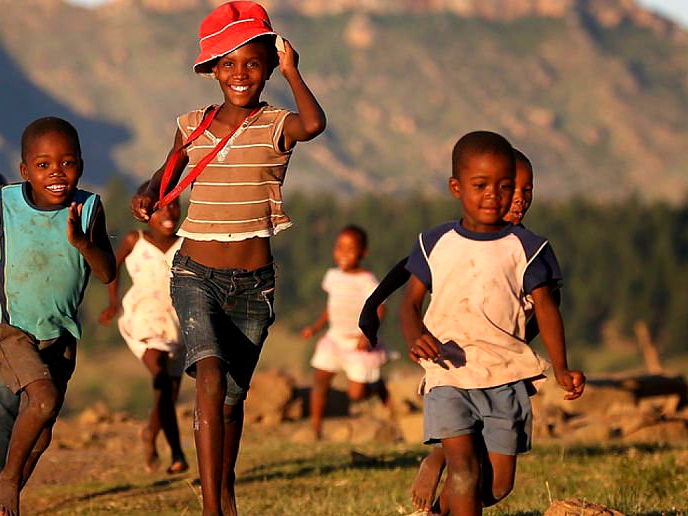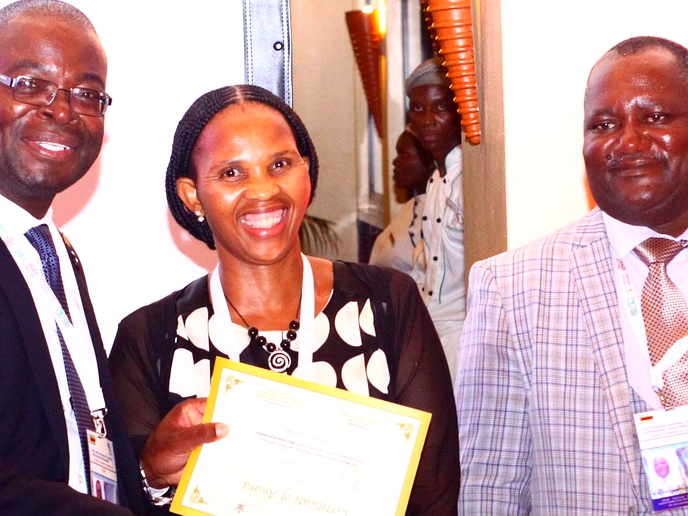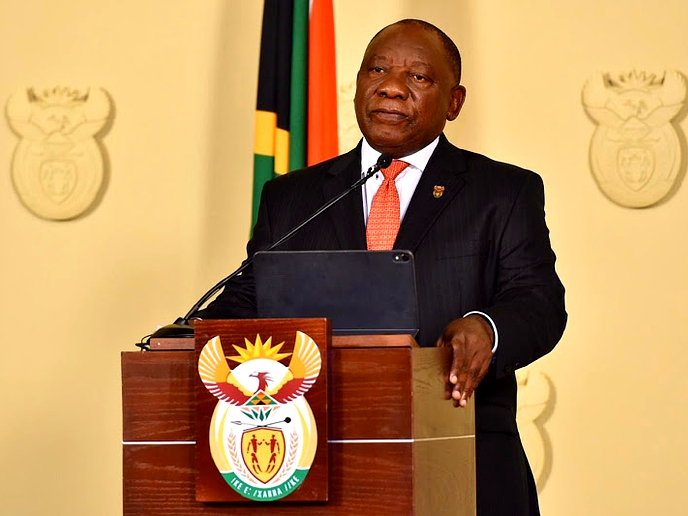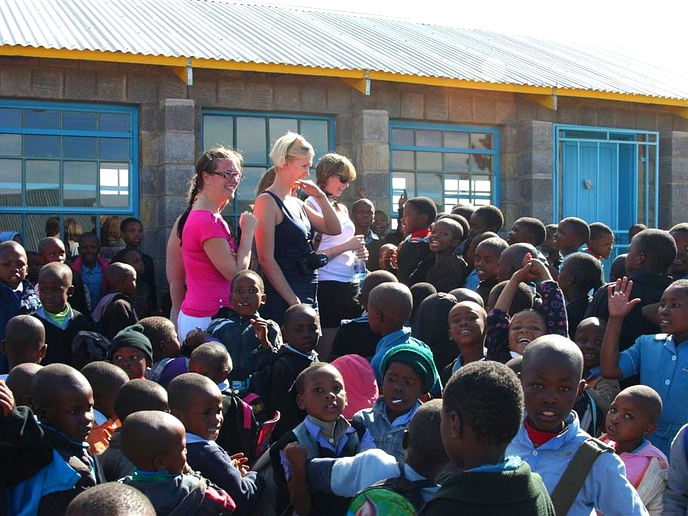Carlos Felipe Jaramillo was recently appointed the World Bank’s Vice President for the Latin America and the Caribbean Region. He was, until his recent appointment, the bank’s country director for Kenya, Rwanda, Uganda and Somalia, based in Nairobi. Raphael Obonyo interviewed Mr. Jaramillo on the World Bank’s efforts in assisting countries in Africa respond and recover from COVID-19.
news
Oct. 14, 2020
RAPHAEL OBONYO
7 min read
Africa must address its debt burden once the pandemic is under control
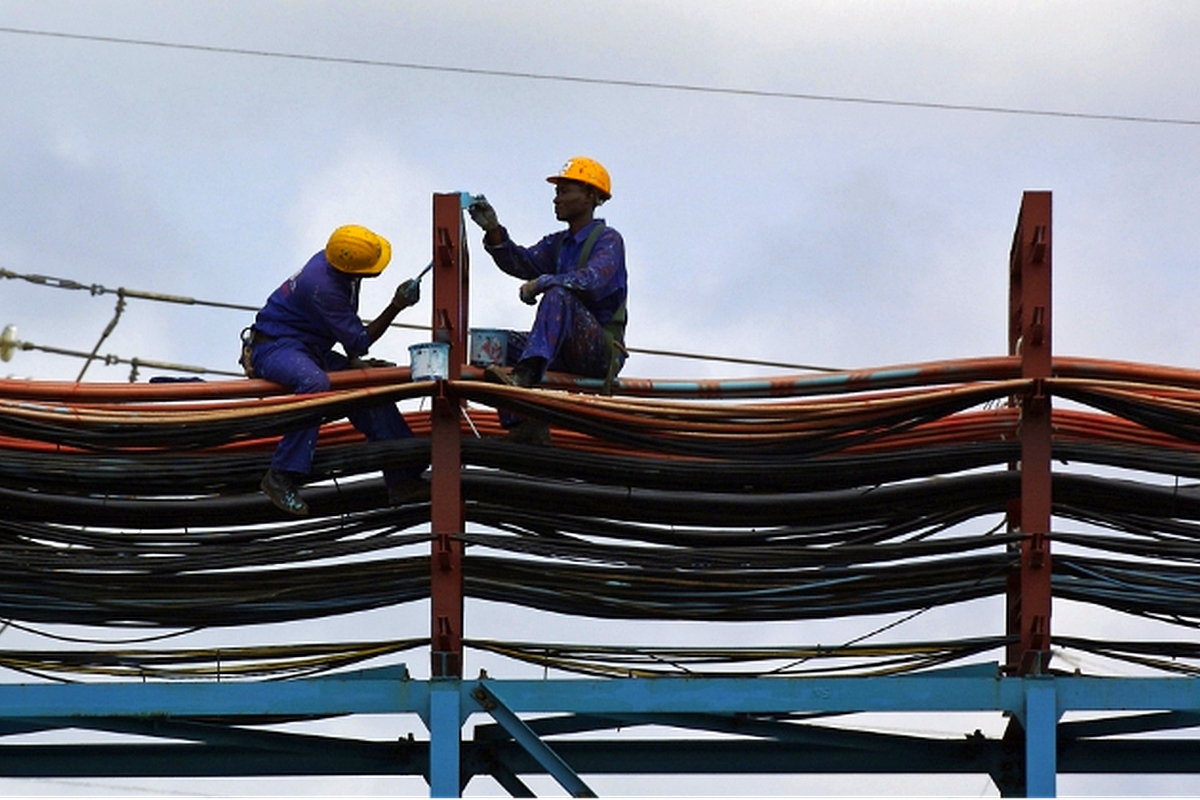
Workers maintain the thermal power station at Takoradi, Ghana, June 21, 2006. Photo: Jonathan Ernst/World Bank
Africa Renewal: How is the World Bank helping countries such as Kenya and others to defeat and address the impact of the COVID-19 pandemic?
Mr. Jaramillo: We have been very focused helping countries like Kenya respond to the COVID-19 pandemic through a massive global effort. Within the first three months of the pandemic, we were able to swiftly approve 100 emergency health credits for 100 countries, including Kenya, Somalia, Uganda and Rwanda.
For Kenya specifically, we executed a very quick emergency disbursement from an ongoing project for 10 million in mid-March for the government to immediately start acquiring test kits, personal protective equipment (PPEs), lab reagents and other critical supplies. This enabled Kenya to adapt facilities for isolation and other emergency actions. In early April, we approved the first loan of $48 million to supplement the funding needs of the Ministry of Health and the entire health system.
As the crisis deepened and affected the broader economy and people’s livelihoods, we triggered the second step, which is a $1 billion concessional credit to help the government continue to finance its operations and provide public services. In addition, we increased the World Bank’s allocations of safety net programmes to Kenya.
We continue to support the Inua Jamii initiative that helps poor families, orphans and the elderly. Some 1.1 million Kenyan families have benefited from this programme. We want to prioritize support for micro, small and medium enterprises (MSMEs), which provide jobs and livelihoods for many ordinary Kenyans.
What about recovering. How could the World Bank help?
There are three main priorities for Kenya that I think are also very relevant for the rest of East Africa. The first is about jobs and SMEs, which are the backbone of the economy. We are helping jumpstart these SMEs many of which are led by young entrepreneurs and hire many young people.
Second is deepening the digital economy. Digital capacity has proven to be an invaluable tool during this pandemic, allowing people to work from home and children to continue to engage in schooling. Even patients can access medical advice through digital means and of course we have digital payments and other digital financial services.
Digital economy will be part of the way we do business in the future. Kenya is a global leader in this, and I think it needs to continue to be a good example for Africa and for the world. But there needs to be more investment in the sector to ensure that 100 percent of ordinary Kenyans have access to broadband.
The third is water and sanitation. Again, the pandemic has revealed something we knew before, which is that our countries suffer from chronic water shortages, that major cities and economic hubs are critically short of water and that agriculture is often hampered by drought. Too many Kenyans don’t have access to water and sanitation. For example, in the North and North Eastern counties of Kenya, access to safe drinking water is only available to less than half of the population and only a third have access to improved sanitation.
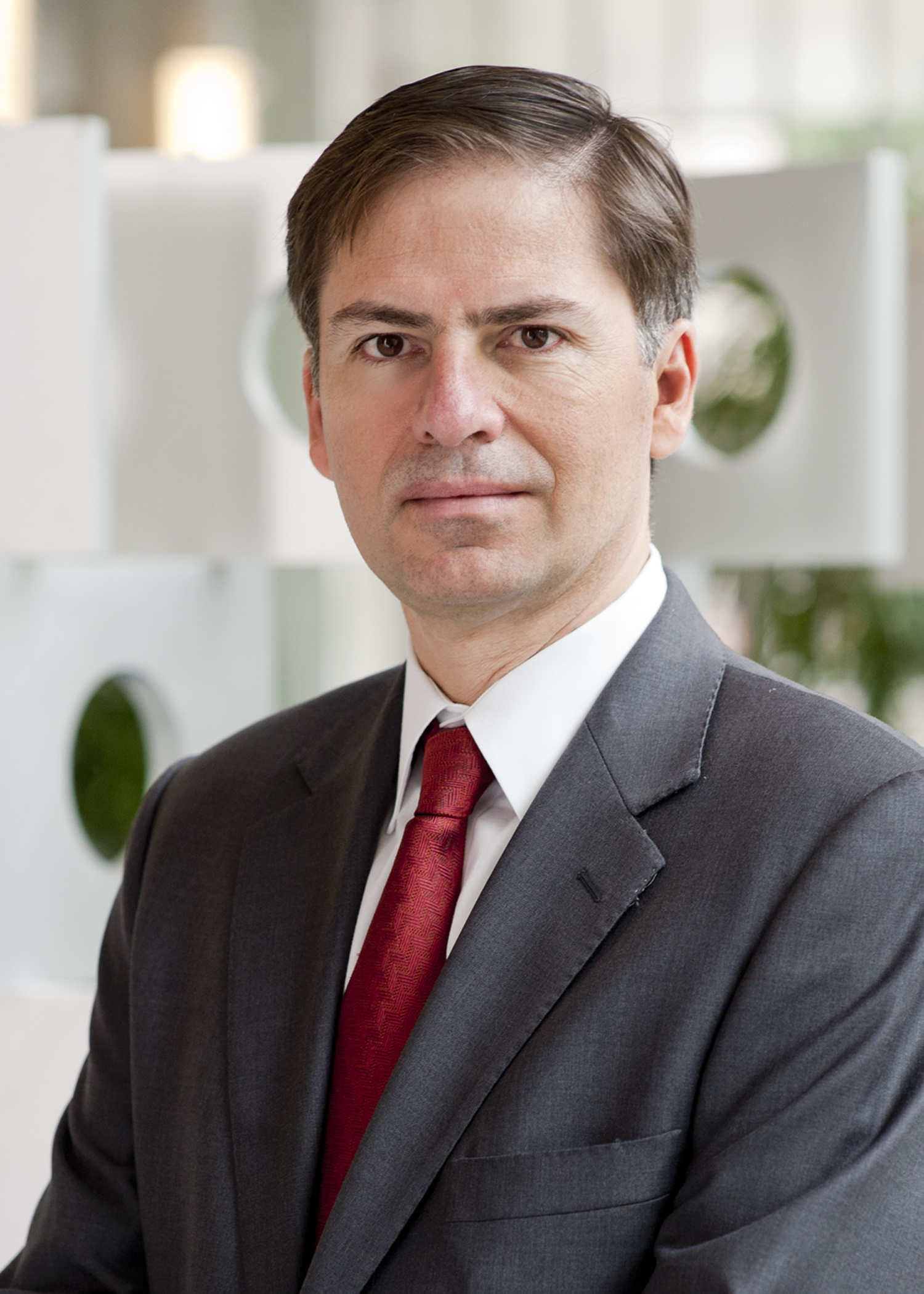
Carlos Felipe Jaramillo, the World Bank’s Vice President for the Latin America and the Caribbean Region
Enjoy our daily newsletter from today
Access exclusive newsletters, along with previews of new media releases.
What can you say were your key achievements having served in Kenya, Rwanda, Uganda and Somalia?
The World Bank has a mission to eliminate poverty around the world and to promote shared prosperity, and I am very proud of the work that we have done in so many areas. We are involved in enhancing health, education, social safety nets, environmental sustainability and agriculture and in supporting the private sector. I am also proud of the COVID-19 response of the last months. I am delighted about our agricultural projects in Kenya and other countries.
The Kenya Climate Smart Agriculture Project, valued at $250 million, aims to increase agricultural productivity and to build resilience to climate change risks for smallholder farmers and for pastoralist communities. It is very innovative, fostering research and training farmers on the best climate-smart practices.
I also like the support we provided for the e-voucher programme that the Kenyan government has expanded for poor smallholder farmers. These farmers receive transfers to buy seeds and fertilizer.
In Rwanda, we helped increase access to electricity. In 2009, only 6 per cent of the Rwandan population had access to electricity; today that’s up to about 40 per cent. Also, 100 per cent of hospitals in Rwanda and 80 per cent of schools are now connected to electricity.
In Uganda, in the last three years we mobilized $500 million of grant financing to assist refugees and their host communities in improving health facilities, education, water services, among others. This is in support of Uganda’s admirable policy of openness toward refugees.
Finally, we normalized the relationship between the World Bank and Somalia through the clearance of all pending payments owed to the bank, IMF and others. Somalia, for the first time in nearly three decades, now has access to World Bank’s resources. I have great hope that this will help get the country back on track.
How is the World Bank helping Kenya achieve its development goals?
I am proud of the North and North Eastern Development Initiative (NEDI) that the World Bank launched in 2018, with $1 billion in funding. The North and North Eastern regions of Kenya are historically underserved and perform below the national average on development indicators. We have focused on electricity, water, agricultural and pastoralist activities and health, and we are trying to help that region and those counties to improve the livelihoods of their people.
The second is devolution. We have several ongoing projects such as the Kenya Accountable Devolution Programme and the Kenya Devolution Support Programme that focus on helping county governments get off the ground, providing them technical assistance and capacity building. For the first time since the institution of a devolved government, two of the county governments received clean audits.
Moving forward, what are some of the areas that African countries must address in terms of governance?
Corruption is a problem. The World Bank joins all governments and citizens in combating this challenge. During my tenure, we pushed for strengthening transparency, internal controls and audits to prevent misuse of government funding.
I am proud of the North and North Eastern Development Initiative (NEDI) that the World Bank launched in 2018, with $1 billion in funding.
We supported the setting up [in Kenya] of the Public Procurement Information Portal www.tenders.go.ke, which publishes thousands of awarded government contracts, with information on the amount, the contracted company and the owners of that company. It even includes information on which government agency and employees constituted the selection panel. This is an excellent example of how to use digital tools to promote transparency and accountability in government.
We need to continue to strengthen institutions, processes and capacities.
How does the World Bank support the most vulnerable households?
We have several projects focused on that. I would highlight two. An innovative one in Kenya, and I think the first of its kind, is called the Kenya Livestock Insurance Programme that was started in 2015. This project insures pastoralists, mainly in the poor arid and semi-arid counties, against the loss of their livestock in case of drought. The way it does this is through satellite imaging. If a loss of pasture is detected by the satellite, a payout to the family is triggered. Last year we had 20,000 vulnerable families insured and we are trying to scale up.
The second project is the Kenya Youth Employment and Opportunities Project that is focused on training the youth, helping them get their first jobs and making them productive.
We are also committed to empowering women to ensure that Kenya maximizes their economic productivity and deepens development outcomes. The bank supports the government in integrating gender equity in project design and implementation. The COVID-19 pandemic has brought to the fore the vulnerability of women and girls to varying forms of gender-based violence (GBV), with a dramatic rise in cases reported in recent months.
How is the World Bank addressing high levels of debt of countries?
Unfortunately, many African countries have relatively high levels of debt and that means that they do not have enough fiscal resources to respond to the crisis and to help people and SMEs preserve jobs. It is important to keep moderate levels of debt to be able to respond to unexpected shocks. And we are happy to continue working with countries to strengthen fiscal frameworks. Once the pandemic is under control and economies begins to recover, then the priority will be to tackle the debt issue.
For more information on COVID-19, visit www.un.org/coronavirus
Africa Renewal
Tailored for you



